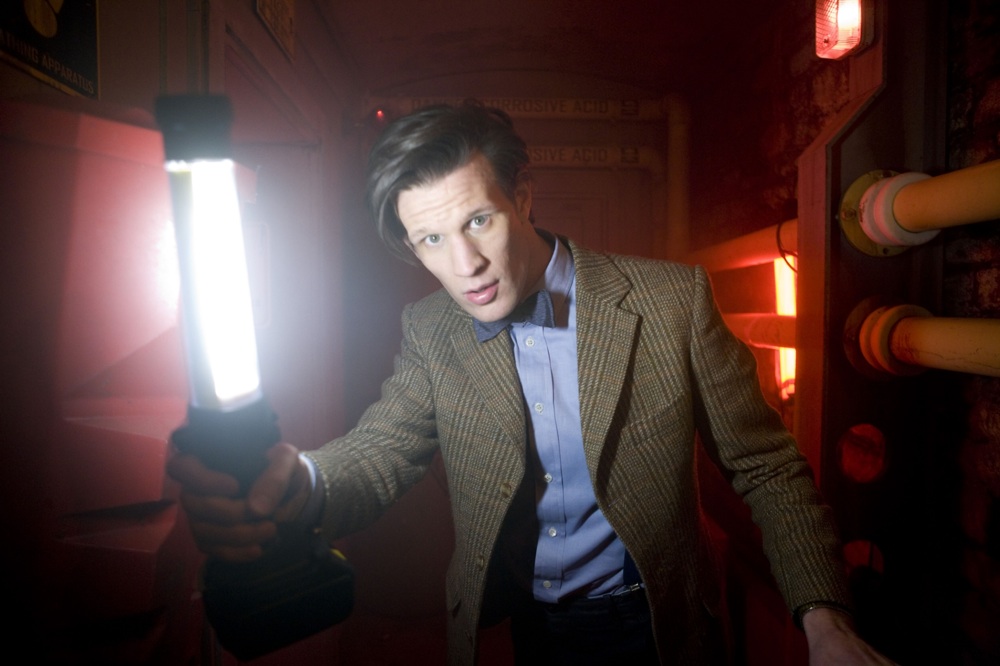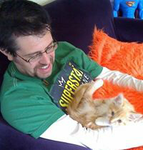BLOG The Doctor Has Never Felt Better
None
More story, better characters, new ideas. SFX blogger and comedian John Cooper reckons the first half of series six is the best we’ve ever had

Game-changing cliffhanger? Game-changing series would be more accurate. Not since Doctor Who returned in 2005 have there been so many changes in the format and structure of the best show on telly. With change comes criticism, and there seems to have been plenty of that this series on the internet, in particular comments made regarding the complexities of the stories, and how it's moved away from its core audience. Well I’m sorry, I’m so sorry – but that's cobblers.
Doctor Who is all about change. Not just the man, but the show too. Excuse me while I get all old school, and I know telly is made differently and funded differently today and people wore different shoes, but let me draw your attention to transition from Barry Letts to Philip Hinchcliffe back in 1974. Letts and Terrance Dicks created a very popular run with their Doctor, Jon Pertwee. Philip Hinchcliffe then came in with Tom Baker and did all manner of creative shuffling and poking, upsetting fans with a corrupt portrayal of Time Lord society, and baiting telly watchdogs with cliffhanger drownings (see “The Deadly Assassin”). In hindsight, however, 1975-77 is regarded creatively and commercially as the apex of the classic series.
Cut to today and we have series six mixing it up and making changes. Setting up big plot threads in episode one that we may not see resolved until the end of the series, after the summer hiatus. But this isn’t Lost , or some other “event” show. I have no doubt when it returns that plots will be resolved tidily, and with their own internal logic.
For want of better metaphors, where once were water slides now we have parachute jumps. The Russell T Davis era, the show that put Doctor Who squarely back on the map, was full of smooth curves and required you simply to sit down and enjoy the ride. It was exhilarating and fresh, and if you missed something on the way round it didn’t affect your enjoyment, as there was a big splash at the end.
Parachute jumps are slightly different. There are not smooth curves. And if you don’t pay a bit of attention at the beginning the end will get messy, but once you’ve work it out, the ride is faster, the rush is stronger and pay-off for your investment is higher.
Like Letts and Dicks, if it wasn't for RTD creating such strong foundations we wouldn’t have Grand Moff TARDIS pushing those boundaries and taking risks with beautiful episodes such as “The Doctor's Wife' that are brave enough to create moments. Not action or exposition moments, but moments at the end of an episode that are full of contemplation; the camera stops to watch the be-goggled doctor sitting in a hammock chair under the TARDIS console fiddling about with wires. Strong, visually rich images that create strong, lingering memories.
Get sneak previews, exclusive competitions and details of special events each month!
From the opening two-parter to the title of the episode the Doctor will return in, series six so far has been tighter, more visually impressive and more narratively rewarding than anything we’ve had before. With time-shifted viewing and box-set watching increasingly popular it’s exactly the kind of telly that requires not just a first watch, but a second and even a third. Trust me, we’ve never had it so good.

Dave is a TV and film journalist who specializes in the science fiction and fantasy genres. He's written books about film posters and post-apocalypses, alongside writing for SFX Magazine for many years.


